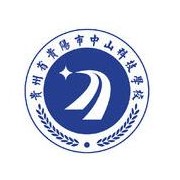惊喜的单词,的英语单词是那个
来源:择校网 时间:2024-12-21 12:55:15
一、有关惊喜的英语单词有哪些
惊喜最常见的英语单词是:surprise
音标:美[sərˈpraɪz]英[sə(r)ˈpraɪz]
释义:
n.惊讶;惊奇;意外;意想不到(或突然)的事
v.使惊奇;使诧异;使感到意外;出其不意地攻击
adj.出乎意料的;令人惊奇的
变形:变形复数:surprises;现在分词:surprising;过去式:surprised
同义词:amaze, astonish, astound, startle, stun
常见短语:
be surprised at sth对某事感到惊讶
be surprised to do sth做某事而感到惊讶
to one's surprise使某人吃惊的是……
in surprise惊讶地
a surprising look一个令人吃惊的表情
be surprised about对听到…感到吃惊
surprise sth from sb出其不意地使某人说出某事
surprise的用法:
surprise是及物动词,其宾语常是人称代词。接名词、代词或以现在分词充当补足语的复合宾语。surprise后接介词at表示“对…感到惊讶”;后接介词from表示“出其不意使…说了”;后接介词,into表示“出其不意地使人…”;后接介词with表示“以…使(某人)惊奇”。
surprise的现在分词和过去分词都可用作形容词,在句中作表语或定语。surprise的现在分词作表语时含主动意义,主语一般是物。常采用以it作形式主语的结构,其真正主语由that引出。surprise的过去分词作表语时含被动意义,主语一般是人,后接由介词at引导的短语、动词不定式或that/wh-从句,表示“对…感到惊奇”。
surprise表示“惊奇,惊讶”,用作不可数名词;表示“令人吃惊的事物”,用作可数名词。surprise在句中还可用作定语。
双语例句:
1.Sue screamed, not loudly, more in surprise than terror.
休尖叫起来,声音不大,吃惊多于恐惧。
2. She looked as if the photographer had caught her by surprise.
看上去,她好像被摄影师搞了个猝不及防。
3. The surprise twists in the storyline are the film's greatest strength.
该影片最精彩之处就是剧情的曲折离奇。
4. Surprise a new neighbour with one of your favourite home-made dishes.
做一道拿手的家常小菜,给你的新邻居一个惊喜。
5. When you venture outside, you are in for a surprise.
你外出探险时,定会遇上意想不到之事。
二、惊喜的英文怎么说
惊喜最常见的英语单词是:surprise
音标:美[sərˈpraɪz]英[sə(r)ˈpraɪz]
释义:
n.惊讶;惊奇;意外;意想不到(或突然)的事
v.使惊奇;使诧异;使感到意外;出其不意地攻击
adj.出乎意料的;令人惊奇的
变形:变形复数:surprises;现在分词:surprising;过去式:surprised
同义词:amaze, astonish, astound, startle, stun
常见短语:
be surprised at sth对某事感到惊讶
be surprised to do sth做某事而感到惊讶
to one's surprise使某人吃惊的是……
in surprise惊讶地
a surprising look一个令人吃惊的表情
be surprised about对听到…感到吃惊
surprise sth from sb出其不意地使某人说出某事
surprise的用法:
surprise是及物动词,其宾语常是人称代词。接名词、代词或以现在分词充当补足语的复合宾语。surprise后接介词at表示“对…感到惊讶”;后接介词from表示“出其不意使…说了”;后接介词,into表示“出其不意地使人…”;后接介词with表示“以…使(某人)惊奇”。
surprise的现在分词和过去分词都可用作形容词,在句中作表语或定语。surprise的现在分词作表语时含主动意义,主语一般是物。常采用以it作形式主语的结构,其真正主语由that引出。surprise的过去分词作表语时含被动意义,主语一般是人,后接由介词at引导的短语、动词不定式或that/wh-从句,表示“对…感到惊奇”。
surprise表示“惊奇,惊讶”,用作不可数名词;表示“令人吃惊的事物”,用作可数名词。surprise在句中还可用作定语。
双语例句:
1.Sue screamed, not loudly, more in surprise than terror.
休尖叫起来,声音不大,吃惊多于恐惧。
2. She looked as if the photographer had caught her by surprise.
看上去,她好像被摄影师搞了个猝不及防。
3. The surprise twists in the storyline are the film's greatest strength.
该影片最精彩之处就是剧情的曲折离奇。
4. Surprise a new neighbour with one of your favourite home-made dishes.
做一道拿手的家常小菜,给你的新邻居一个惊喜。
5. When you venture outside, you are in for a surprise.
你外出探险时,定会遇上意想不到之事。
三、惊喜的英文怎么写
惊喜的英文为:surprise。
读法:英 [səˈpraɪz]美 [sərˈpraɪz]
1、作名词时,意思有:意想不到(或突然)的事;令人惊奇的事(或消息等);惊奇;惊讶;意外;出人意表的做事方式;出奇制胜的策略。
示例:Ihaveasurpriseforyou:WearemovingtoSwitzerland!
我有一个惊喜的消息要告诉你:我们要搬去瑞士了!
2、作动词时,意思有:使惊奇;使诧异;使感到意外;出其不意地攻击;使措手不及;无意中发现。
示例:We'llsolvethecaseourselvesandsurpriseeveryone
我们要自己解决这件事,然后让所有人感到吃惊。
扩展资料
近义词
1、astound
英[ə'staʊnd];美[ə'staʊnd]
v.使惊骇;使大吃一惊
例:Her elopement astounded her parents.
她的私奔使她的父母大为震惊。
例:The figures revealed by the report are astounding.
这份报告透露的数字使人震惊。
2、amaze
英[ə'meɪz];美[ə'meɪz]
vt.使吃惊;使惊异
vi.惊讶
n.吃惊;好奇
例:He amazed me by his audacity.
他的无理让我惊骇。
例:I was amazed to find her there.
发现她在那,我感到很吃惊。
四、***惊喜***的英语单词是那个
surprise英[sə'praɪz]美[sər'praɪz]
释义:n.惊奇;惊喜;惊讶;突然;vt.使惊奇;使惊喜;突然袭击;惊讶地发现
详尽释义:
1、v.(动词):
vt.使惊奇,使诧异give a feeling of surprise to; vt.意外地发现,撞见find or catch when unprepared
2、n.(名词):[U]惊奇,惊讶feeling caused by sth happening suddenly or unexpectedly;[C]令人吃惊的事物event or thing that causes this feeling
例句:
用作名词(n.)
1、John turned around and looked at me in surprise.
约翰转过身来,惊奇地望着我。
2、It was a great surprise to learn of her marriage.
得知她结婚是一件十分令人惊喜的事。
3、I tried to conceal my surprise when she said she was only 22.
当她说她只有22岁时,我尽力掩饰自己的惊讶。
4、I must say the news came as a total surprise.
我得说这个消息来得太突然了。
扩展资料:
近义词amaze的用法
amaze英[ə'meɪz]美[ə'meɪz]

释义:vt.使吃惊;使惊异;vi.惊讶;n.吃惊;好奇
常见句型:
用作动词(v.)用作及物动词S ~ n./pron.
1、Your knowledge amazes me.
你丰富的知识令我吃惊。
2、He amazed everyone by passing his driving test.
他驾驶考试合格使大家很惊奇。
3、It amazed us to hear that you were leaving.
听到你要走,我们都很吃惊。
如果你还想了解更多这方面的信息,记得收藏关注本站。







